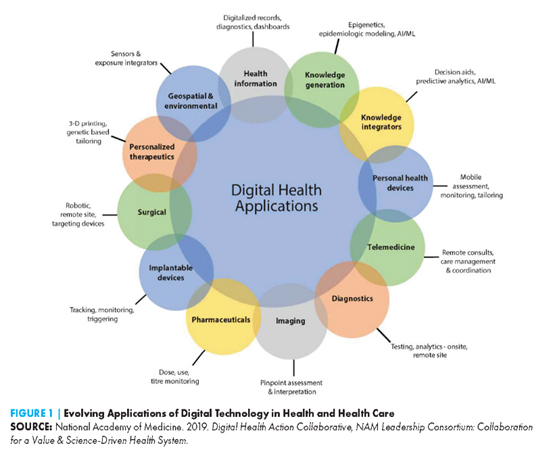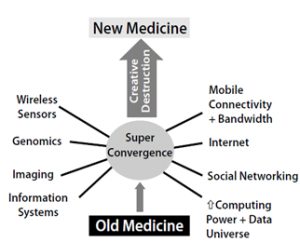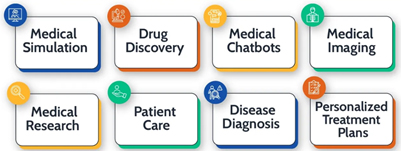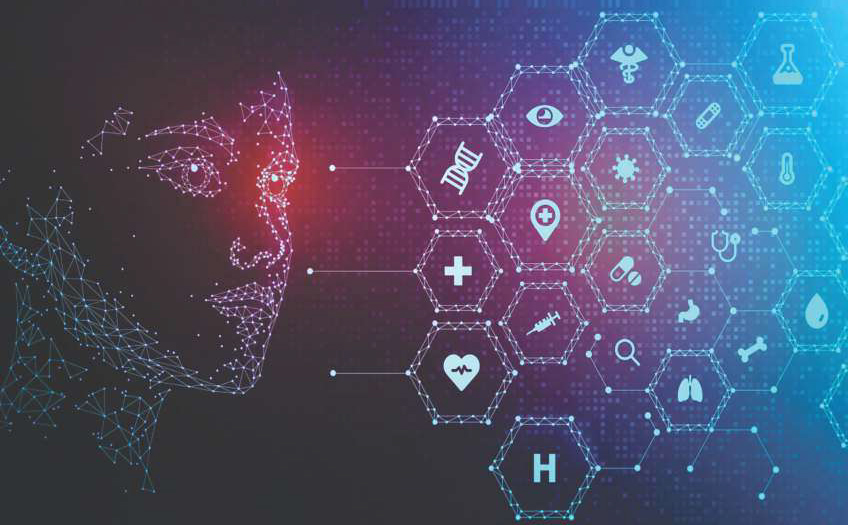The healthcare industry is undergoing a transformative shift, fueled by the rapid advancement and integration of digital health technologies. These innovations are not merely incremental improvements but pivotal agents of change that fundamentally reshape the healthcare landscape. The implications of this transformation are profound, offering opportunities to significantly enhance patient care, streamline healthcare processes, and empower healthcare professionals in unprecedented ways.
Digital health technologies are revolutionizing patient care, making it more personalized, efficient, and effective. With tools such as telemedicine, patients can access medical consultations from the comfort of their homes, reducing the need for physical visits and enabling timely medical advice. Wearable devices and mobile health apps empower patients to monitor their health in real time, providing valuable data on vital signs, physical activity, and medication adherence. This continuous monitoring allows for early detection of potential health issues, personalized health insights, and tailored treatment plans, leading to better health outcomes. Moreover, digital health innovations like artificial intelligence (AI) and machine learning enhance diagnostic accuracy and treatment efficacy. AI algorithms can analyze complex medical data at an unparalleled speed and accuracy, assisting clinicians in diagnosing diseases, predicting health risks, and recommending optimal treatment paths. This technology-driven approach supports a more personalized medicine framework, where treatments are tailored to the individual characteristics of each patient.

Integrating digital health technologies significantly streamlines administrative and operational processes within healthcare institutions. Electronic Health Records (EHRs) are replacing paper-based systems, facilitating easier access to patient information, reducing errors, and improving communication among healthcare professionals. Blockchain technology further enhances data security and integrity, ensuring patient privacy and trust. Automation and AI are also streamlining clinical workflows, reducing the burden of repetitive tasks on healthcare professionals, and allowing them to focus more on patient care. For instance, AI-powered chatbots can manage routine inquiries and patient triage, while robotic process automation (RPA) can automate billing, scheduling, and claims processing.
Digital health technologies empower healthcare professionals by providing tools and data to make better-informed decisions. Access to vast medical research and patient data at their fingertips allows for more accurate diagnoses and evidence-based treatments. Big data analytics and predictive models offer insights into disease patterns, treatment outcomes, and health trends, enabling proactive and preventive healthcare strategies. Furthermore, digital health platforms facilitate professional development and collaboration among healthcare workers.

Creative Destruction of Medicine
The concept of “creative destruction,” articulated by the economist Joseph Schumpeter in the mid-20th century, illuminates the process through which old industries are dismantled and replaced by new and more efficient production mechanisms, thereby driving economic growth and innovation. While initially applied to the broader economy, this notion finds a particularly compelling application in medicine, where technology and digital innovations are rapidly transforming traditional healthcare practices. Eric Topol, in his influential book “The Creative Destruction of Medicine: How the Digital Revolution Will Create Better Health Care,” explores how this concept is revolutionizing the medical field, ushering in an era of personalized medicine facilitated by advancements in genomics, digital technologies, and data analysis. Topol’s work highlights a fundamental shift from a one-size-fits-all approach to healthcare towards a more tailored and precise form of medicine. The traditional paradigms of medical practice, heavily reliant on population-based statistics and generalized treatment methodologies, are being dismantled. In their place, a new era of medicine is being constructed—one that leverages the power of genomic sequencing, wearable sensors, and big data analytics to understand and treat patients individually. This seismic shift promises to enhance the accuracy of diagnoses and the effectiveness of treatments and empower patients with insights and control over their health outcomes.
Central to this transformation is integrating digital health technologies, which serve as the engines of creative destruction in medicine. The proliferation of wearable devices and mobile health applications enables continuous monitoring and real-time data collection on an individual’s health status. This data, when analyzed through sophisticated AI algorithms, can predict health issues before they manifest, allowing for preventive measures rather than reactive treatments. Similarly, genomic sequencing uncovers the genetic predispositions of individuals, guiding the development of personalized medicine that aligns with each person’s unique genetic makeup. Moreover, the digital revolution in healthcare facilitates a more participatory form of medicine. Armed with access to their health data and a growing repository of medical knowledge available online, patients are becoming active participants in their care. This democratization of health information challenges the traditional physician-centric healthcare delivery model, fostering a more collaborative relationship between patients and healthcare providers. However, the path to this future is not devoid of challenges. While promising, the creative destruction of medicine raises significant ethical, privacy, and equity concerns. The management and protection of sensitive health data, the potential for widening the health disparity gap due to unequal access to digital technologies, and the need for regulatory frameworks that can adapt to technological advancement are critical issues that must be addressed.
Generative AI and Healthcare
Integrating Generative AI into healthcare is revolutionizing how medical professionals diagnose, treat, and manage diseases. This innovative technology leverages algorithms and neural networks to generate new, synthetic instances of data that can mimic real-world patterns, thereby providing invaluable resources for research, clinical practice, and personalized medicine. Generative AI models, such as Generative Adversarial Networks (GANs) and Variational Autoencoders (VAEs), are at the forefront of this transformation. These models can create realistic medical images patient data, and even simulate disease progression scenarios, which are particularly useful in training medical professionals and developing treatment plans. This capacity to generate vast amounts of synthetic yet realistic data can significantly alleviate the limitations posed by the scarcity of available medical datasets, a common hurdle in medical research due to privacy concerns and the rarity of certain conditions.
One of the most promising applications of Generative AI in healthcare is the development of personalized medicine. By analyzing a patient’s unique genetic makeup, lifestyle, and environment, Generative AI can help predict how they will respond to certain treatments or medications. This approach can lead to more effective and tailored treatment plans, reducing the trial-and-error process often associated with finding the right medication or therapy, thus enhancing patient outcomes and satisfaction. Moreover, Generative AI is instrumental in drug discovery and development. By simulating the molecular structures of potential drugs and predicting their interactions with biological targets, AI can identify promising candidates for new medications much faster and at a lower cost than traditional methods. This not only accelerates the pace of drug development but also has the potential to unearth treatments for currently considered untreatable diseases. In medical imaging, Generative AI is used to enhance the quality of images or generate new ones where data may be missing or insufficient. This capability is crucial in diagnosing conditions that are difficult to detect and in areas where medical imaging resources are limited. Furthermore, AI-generated simulations of surgical procedures offer a risk-free environment for surgeons to practice and refine their skills, leading to better surgical outcomes and patient safety. Top generative AI use cases in healthcare are depicted in Figure 3.

Ethical considerations and data privacy are paramount when applying Generative AI in healthcare. The synthetic data generated by AI must be managed with the same care as real patient data to prevent misuse or breaches of privacy. Additionally, there is a need for continuous monitoring to ensure the accuracy and reliability of the AI-generated outcomes, as any inaccuracies could lead to misdiagnosis or inappropriate treatment plans. Despite these challenges, the potential benefits of Generative AI in healthcare are immense. By enhancing diagnostic accuracy, personalizing treatment plans, accelerating drug development, and improving medical training, Generative AI sets the stage for a future where healthcare is more efficient, effective, and accessible to all. As this technology continues to evolve, healthcare providers, researchers, and policymakers need to work together to address the ethical and practical challenges it presents, ensuring that the benefits of Generative AI can be fully realized in a way that is safe, ethical, and beneficial for all.
Conclusion
Digital innovations are making healthcare more personalized, efficient, and effective, enabling telemedicine, continuous health monitoring through wearable devices, and enhanced diagnostic accuracy with AI. These technologies streamline healthcare administration, improve patient care, and support personalized medicine by analyzing vast amounts of data. Generative AI is revolutionizing healthcare by generating synthetic data for research, aiding in drug discovery, enhancing medical imaging, and simulating surgical procedures. Despite the immense benefits, ethical and privacy concerns must be addressed to fully realize the potential of these technologies in making healthcare more accessible and effective.
















